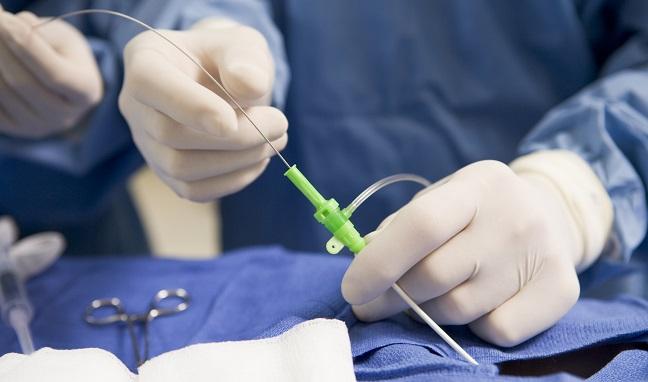What Cardiology reveals about managing high blood pressure
What Cardiology reveals about managing high blood pressure
Blog Article
Understanding the Significance of Cardiology in Modern Health Care Solutions
Cardiology plays an essential role in contemporary medical care, specifically as cardiovascular disease remains to be the leading source of mortality worldwide. Developments in diagnostics and therapy have changed individual treatment, enabling earlier interventions and enhanced results. The shift towards preventive cardiology encourages people to manage their wellness proactively. As innovation remains to advance, the combination of ingenious solutions might further redefine cardiology's influence on public health and wellness, prompting a better assessment of arising trends and their effects.
The Prevalence of Heart Problem and Its Effect On Public Wellness
Although heart problem stays the leading cause of death around the world, its influence expands far beyond private people to affect public health and wellness systems and economic climates. The high frequency of cardiovascular disease puts a considerable strain on medical care resources, requiring increased financing for therapy, rehabilitation, and prevention programs. Public health and wellness efforts need to attend to threat elements such as obesity, cigarette smoking, and sedentary lifestyles, which add considerably to the rising occurrence of heart conditions.Moreover, the economic problem related to heart problem is immense, encompassing not only direct clinical costs but likewise indirect expenses connected to lost efficiency and early mortality. Communities deal with challenges in managing these prices, commonly resulting in differences in healthcare accessibility and results. As the populace ages and lifestyle-related threats remain to escalate, the seriousness for effective cardiology interventions becomes critical. Consequently, addressing heart problem is not just a matter of private wellness however likewise a vital public health priority.
Breakthroughs in Heart Diagnostics and Imaging Techniques
Current developments in cardiac diagnostics and imaging strategies have actually revolutionized the area of cardiology, boosting the ability to check and spot heart diseases. Strategies such as cardiac MRI, CT angiography, and echocardiography have become significantly innovative, providing in-depth pictures of heart structures and features. These methods permit the early identification of problems like coronary artery disease, cardiac arrest, and valvular disorders.Moreover, developments in non-invasive diagnostics, such as wearable technology and remote monitoring tools, have encouraged people and healthcare service providers. These tools help with real-time tracking of heart rhythms and various other important signs, causing prompt interventions. Furthermore, artificial intelligence is being integrated into imaging evaluation, enhancing precision and efficiency in medical diagnosis.
Innovations in Treatment Options for Heart Issues
Current innovations in cardiology have resulted in substantial innovations in therapy choices for heart problems. These consist of advanced medical techniques that boost procedural results and arising drugs that offer new opportunities for treatment. As the field develops, these innovations play an important function in boosting individual treatment and end results.
Advanced Surgical Techniques
Developments in medical methods have transformed the landscape of cardiology, providing new expect patients with heart conditions. Minimally intrusive procedures, such as catheter-based treatments, have substantially decreased recuperation times and medical facility stays. Methods like robotic-assisted surgical procedure boost accuracy, permitting specialists to browse complex physiological frameworks with higher precision. Innovations in imaging technology promote real-time visualization during treatments, improving end results. Transcatheter aortic valve replacement (TAVR) exemplifies an advancement in treating aortic stenosis, making it possible for valve substitute without open-heart surgical procedure. Additionally, hybrid strategies that incorporate catheter-based and medical approaches supply customized services for different cardiac issues. These innovative medical methods not just improve person safety and security but additionally broaden treatment alternatives, highlighting the important role of development in contemporary cardiology techniques.
Arising Medicines and Treatments
As the landscape of cardiology remains to develop, emerging therapies and medicines play a critical function in improving treatment choices for heart problems. Technologies such as novel anticoagulants and advanced lipid-lowering agents have actually transformed the monitoring of heart diseases, significantly reducing patient morbidity and death. Furthermore, the development of gene therapies and regenerative medication offers promising opportunities for treating problems previously regarded incurable. Clinical tests are continuously revealing the efficacy of these therapies, pressing the borders of standard therapies. Moreover, the assimilation of electronic health modern technologies assists in individualized medication, enabling customized therapy strategies based on hereditary and way of life elements. Jointly, these developments underscore the vibrant nature of cardiology, improving person results and redefining standards of treatment in modern-day medical care.
The Role of Preventive Cardiology in Individual Treatment
Precautionary cardiology plays an important duty in person care by concentrating on the recognition of danger aspects that contribute to heart condition. With way of living modification techniques and very early discovery techniques, doctor can efficiently decrease the occurrence of cardiovascular events - Cardiology care. This aggressive approach not only boosts client results however also advertises long-term health and wellness
Danger Element Recognition
While cardio diseases stay a leading reason for morbidity and mortality worldwide, efficient risk factor recognition serves as a cornerstone of preventative cardiology. Recognizing threat factors such as hypertension, hyperlipidemia, diabetes mellitus, and household background is necessary for very early treatment. Medical care professionals utilize various evaluating approaches to assess these aspects, permitting tailored safety nets. Additionally, comprehending a person's way of life options, such as cigarette smoking and physical inactivity, additionally educates risk assessments. This detailed evaluation enables medical professionals to create individualized care strategies targeted at mitigating risks. By prioritizing threat aspect identification, medical care systems can enhance person end results and lower the general problem of cardio diseases, inevitably adding to improved public health methods and resource allocation.
Lifestyle Alteration Methods
A plethora of researches highlights see it here the critical function of way of living alteration strategies in reducing heart disease danger. These techniques incorporate dietary adjustments, boosted exercise, smoking cessation, and weight administration. By adopting a heart-healthy diet abundant in fruits, veggies, entire grains, and lean proteins, people can lower cholesterol levels and blood stress. Routine physical task enhances the heart and enhances overall cardio health. Furthermore, quitting cigarette smoking greatly lowers the danger of heart problem and improves recovery rates for those with status quo. Weight monitoring further contributes to cardiovascular wellness by mitigating various other danger variables such as diabetes mellitus Home Page and hypertension. Applying these way of living changes not just promotes individual health however also works as a cornerstone of preventative cardiology in client care.
Early Discovery Methods
Lifestyle alterations greatly contribute to minimizing cardiovascular illness threats, but they are most reliable when coupled with very early discovery methods. Preventative cardiology emphasizes the importance of identifying potential heart problems before they intensify right into serious conditions. Methods such as blood stress tracking, cholesterol screening, and advanced imaging innovations like echocardiograms play important functions in assessing cardio health and wellness. Biomarkers and hereditary testing also improve the precision of early discovery, permitting tailored preventive methods. Normal heart danger examinations encourage doctor to intervene proactively, potentially protecting against cardiac arrest and strokes (Dr Garcia). By incorporating these early discovery approaches right into routine care, clients can benefit from timely lifestyle treatments and targeted treatments, inevitably improving results and improving lifestyle
Integrating Modern Technology Into Cardiology Practices
As improvements in innovation proceed to improve various areas, the integration of ingenious devices and systems right into cardiology techniques has actually come to be essential for boosting patient care and results. Telemedicine platforms permit cardiologists to keep track of people remotely, improving access to care while decreasing the worry on medical care centers. Wearable devices, such as smartwatches, allow continuous heart price surveillance, informing both clients and doctors to potential read review concerns in real-time. Additionally, expert system (AI) is being utilized to assess vast quantities of cardiac information, helping in early medical diagnosis and individualized treatment strategies. Advanced imaging techniques, including 3D echocardiography, boost visualization of heart frameworks, causing extra accurate interventions. Digital wellness documents (EHRs) improve person info administration, making certain that cardiologists have prompt access to essential information. Together, these technical advancements are transforming cardiology, promoting aggressive administration and improved health results for clients with cardio problems.
The Value of Patient Education and Engagement
Patient education and interaction play a crucial role in the management of cardio health. By furnishing people with expertise concerning their problems, treatment choices, and way of living adjustments, doctor encourage individuals to take an active duty in their treatment. This aggressive strategy can bring about boosted adherence to prescribed medications, dietary adjustments, and exercise programs, ultimately minimizing the danger of complications.Engagement likewise cultivates a solid patient-provider partnership, urging open interaction and trust fund. When patients feel informed and involved, they are more likely to voice worries and ask inquiries, which can cause much better medical end results. Additionally, academic resources, such as workshops or electronic platforms, can enhance understanding and promote self-management strategies. Generally, focusing on individual education and involvement is important for improving cardio wellness, improving lifestyle, and minimizing medical care prices connected with cardiovascular conditions.
Future Patterns in Cardiology and Their Potential Influence

Regularly Asked Questions
What Way Of Living Changes Can Decrease Heart Problem Danger?
The existing inquiry addresses way of living adjustments that can significantly decrease cardiovascular disease threat. Cardiology Jupiter. Embracing a balanced diet plan, participating in regular physical activity, maintaining a healthy weight, managing stress, and avoiding cigarette can especially improve cardio wellness
Exactly How Can I Identify Early Indications of Heart Problems?
Recognizing early indicators of heart issues entails surveillance signs such as chest discomfort, shortness of breath, tiredness, and irregular heartbeat. Prompt understanding of these signs can trigger essential medical evaluation and intervention for far better results.
What Are the Distinctions Between Cardiologists and Heart Surgeons?
The differences in between cardiologists and cardiac surgeons depend on their functions; cardiologists mostly diagnose and handle heart problems with non-invasive methods, while heart cosmetic surgeons execute surgeries to deal with structural heart problems. Each plays a crucial, unique role.

How Often Should I Obtain My Heart Health And Wellness Checked?
The frequency of heart health checks differs based on specific risk elements. Usually, grownups need to undertake evaluations each to two years, while those with present conditions may require more frequent evaluations as encouraged by medical care experts.
What Duty Does Genes Play in Cardiovascular Disease Danger?
Genetics substantially influences heart problem risk, with familial patterns suggesting acquired conditions. Specific genetics can incline people to hypertension, cholesterol problems, and other cardiovascular problems, highlighting the significance of genetic testing in evaluating heart health. Heart illness remains the leading reason of death worldwide, its impact prolongs much past individual patients to influence public health and wellness systems and economic situations. Public health campaigns must resolve risk variables such as weight problems, cigarette smoking, and less active way of lives, which contribute substantially to the rising occurrence of heart conditions.Moreover, the economic burden associated with heart condition is enormous, including not just straight clinical prices yet likewise indirect expenditures connected to lost performance and early death. Preventive cardiology plays a crucial duty in person care by concentrating on the identification of danger factors that add to heart condition. Artificial knowledge (AI) and machine discovering are enhancing diagnostics and person surveillance, allowing very early discovery of heart illness. The distinctions between cardiologists and heart cosmetic surgeons exist in their duties; cardiologists mainly take care of and identify heart problems with non-invasive methods, while cardiac cosmetic surgeons perform medical treatments to remedy architectural heart issues.
Report this page